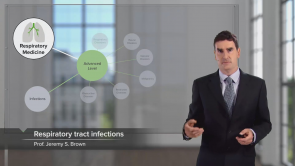Money and Monetary Policy

Über den Vortrag
Der Vortrag „Money and Monetary Policy“ von James DeNicco ist Bestandteil des Kurses „Principles of Macroeconomics (EN)“. Der Vortrag ist dabei in folgende Kapitel unterteilt:
- Introduction: Money and Monetary Policy
- Roles of Money
- 3 Ways of Controlling the Money Supply
- What Effects Money Demand / Open Economy: Nominal Exchange Rates
- Real Exchange Rates
- The Effects of Monetary Policy
Quiz zum Vortrag
Which of the roles of money pertains to the following? Instead of having to trade bread to the butcher for beef, I give the butcher money for beef so that he can buy his own bread.
- Medium of Exchange.
- Unit of Account.
- Store of Value.
- None of the above.
Which of the following would constitute a contractionary monetary policy?
- Open market sales of bonds.
- Lowering the reserve requirement.
- Open market purchases of bonds.
- Lowering the Discount Rate.
If the euro(€) depreciates against the U.S. dollar($), it becomes...
- ...cheaper for Americans to buy European products but more expensive for Europeans to buy American products.
- ...cheaper for Americans to buy European products and cheaper for Europeans to buy American products.
- ...more expensive for Americans to buy European products but cheaper for Europeans to buy American products.
- ...more expensive for Americans to buy European products and more expensive for Europeans to buy American products.
Expansionary monetary policy would _______ interest rates and _______ the U.S. dollar, leading to a(an) _______ in U.S. net exports.
- decrease, depreciate, increase
- decrease, appreciate, increase
- increase, depreciate, decrease
- increase, appreciate, decrease
Kundenrezensionen
5,0 von 5 Sternen
| 5 Sterne |
|
5 |
| 4 Sterne |
|
0 |
| 3 Sterne |
|
0 |
| 2 Sterne |
|
0 |
| 1 Stern |
|
0 |




